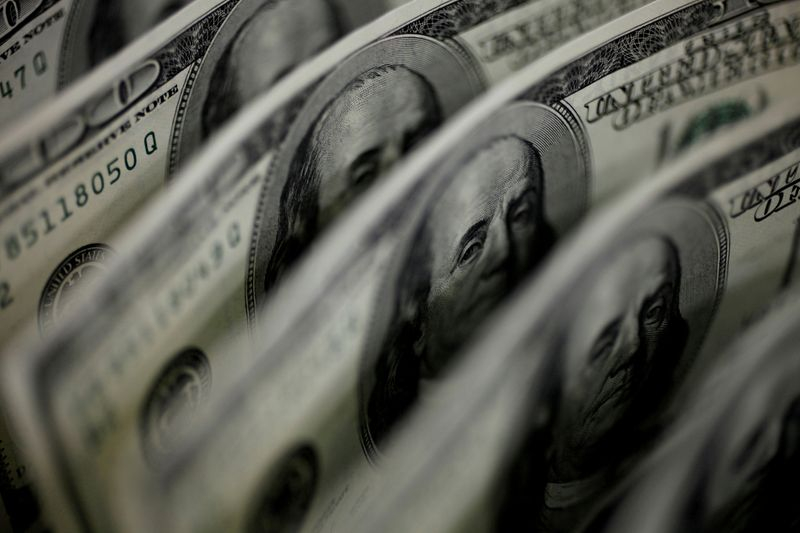Commodity currencies hold advantage as dollar waits for inflation and Fed By Reuters

By Stanley White
TOKYO (Reuters) – The dollar nursed losses against the currencies of major commodity exporters which enjoyed support from expectations for further gains in the price of oil, copper, steel, and other metals.
Traders are keenly awaiting the release of U.S. consumer price data on Wednesday to measure whether inflationary pressure is building, which could push Treasury yields higher and slow the dollar’s fall, some traders say.
Treasuries and the dollar have swung back and forth as investors adjust their expectations for when the U.S. Federal Reserve will start tapering bond purchases and raising interest rates as the U.S. economy gains momentum.
A host of Fed speakers this week are likely to leave investors with plenty to consider as they try to forecast how policymakers will react to receding risks posed by the coronavirus in some major economies.
“Right now the easiest reflation trade is to watch commodity prices and buy commodity currencies,” said Yukio Ishizuki, foreign exchange strategist at Daiwa Securities.
“The markets have doubts about the Fed’s benign view of inflation, but uncertainty about policy keeps some currency pairs in a tight range.”
Against the Canadian dollar, the U.S. dollar traded at C$1.2097, close to its weakest in more than three years.
The Australian dollar edged up to $0.7836, near an 11-week high. Across the Tasman Sea, the New Zealand dollar was quoted at $0.7267, which is near its strongest level since late February.
The greenback was also near a two-week low against the Mexican peso.
Many investors expect commodities demand to surge as coronavirus vaccinations allow more countries to resume normal economic activity.
In addition, supply constraints for some commodities suggest that prices could remain elevated for an extended period, which has made some commodity currencies the best performers against the dollar so far this year.
Investors are also focused on how the U.S. labour market will affect inflation in the world’s largest economy, but a disappointing nonfarm payrolls report last week has left the dollar mixed against other currencies.
The British pound bought $1.4130, close to its strongest since Feb. 25 as investors cheered Britain’s progress in reopening its economy.
The euro edged up to $1.2137.
Against the yen, the dollar was flat at 108.87.
In the cryptocurrency market, ether was quoted at $3,906, down slightly from a record high of $4,200. Bigger rival bitcoin fell slightly to $55,578.

